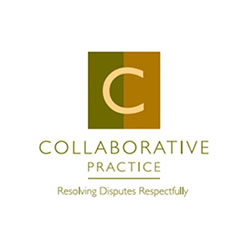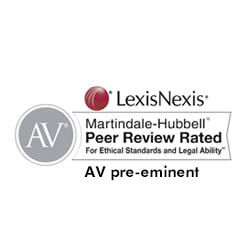Compassionate Matrimonial Lawyer Protects You and Your Family
With more than 40 years of legal experience as a New York City matrimonial attorney, Lawrence N. Rothbart has an in-depth understanding of New York matrimonial law and can promptly devise legal strategies to help you protect you and your family during the divorce or separation process. For nearly four decades, Lawrence Rothbart has provided extensive legal services to clients throughout New York in family law matters, including in representing clients in child custody and parenting plans.
Knowledgeable Attorney You Can Rely On to Deliver Effective Legal Solutions
Whether you are needing to help draft a compromised parenting plan, negotiate fair child support or spousal support award, or need guidance through an embittered divorce, Lawrence N. Rothbart can help. We provide extensive legal services in all family law matters, including:

- Uncontested and contested divorce
- Collaborative law
- Child custody and parenting plans
- Child and spousal support
- Mediation
- Settlement negotiation
- Separation agreements
- Prenuptial and postnuptial agreements
We can provide you with the sound legal advice and representation during this important time in your life. Divorce and separation often have many legal implications, so it is important that you have the resources and support of a knowledgeable New York City matrimonial attorney. Lawrence Rothbart can help you protect your own interests, as well as the interests of the most vulnerable members of your family.
Experienced and Neutral Mediator Helps You Resolve Family Law Issues
As a seasoned New York City matrimonial lawyer, Lawrence Rothbart knows that litigation is not always the best way to resolve family legal issues. He is equally capable of helping parties reach an amicable and mutually-beneficial mediated agreement as he is at obtaining a favorable court judgment for his client. When appropriate, he advocates for the resolution of matrimonial law issues through mediation and collaborative practice, which often provide a respectful manner to resolve the issues in a supportive environment. These methods also allow the parties to explore options that are tailored to fit their particular situation. Families also benefit from these forms of alternative dispute resolution by having better relationships and avoiding spending much-needed resources of your marital estate.
Contact a New York City Matrimonial Lawyer Dedicated to Protecting Your Interests
 If you need to craft a fair child custody agreement, a prenuptial agreement that protects your property interests, or a settlement agreement for your divorce or separation, Lawrence Rothbart is here to help. He will leverage his decades of experience and knowledge in New York matrimonial law to deliver solutions that are tailored to your particular needs and objectives. Learn more about your rights, New York family laws, or the mediation process by calling Lawrence Rothbart at (917)204-8268 or completing our online contact form. We are currently offering online family mediations to help families during the COVID-19 crisis.
If you need to craft a fair child custody agreement, a prenuptial agreement that protects your property interests, or a settlement agreement for your divorce or separation, Lawrence Rothbart is here to help. He will leverage his decades of experience and knowledge in New York matrimonial law to deliver solutions that are tailored to your particular needs and objectives. Learn more about your rights, New York family laws, or the mediation process by calling Lawrence Rothbart at (917)204-8268 or completing our online contact form. We are currently offering online family mediations to help families during the COVID-19 crisis.
Frequently Asked Questions
What is Collaborative Law or Collaborative Practice?
Collaborative Law or Collaborative Practice is an innovative legal process in which parties involved in a legal dispute work together with lawyers and other professionals who are dedicated to resolving the case outside of court. Rather than battling in each other in litigation, the parties focus on reaching an amicable settlement through a collaborative approach. The parties focus on problem-solving, brainstorming solutions and using open communication to advance their interests.
What are the benefits of Collaborative Law or Collaborative Practice?
There are several benefits to Collaborative Law or Collaborative Practice. Because the parties are openly communicating, they can freely share information with each other without the additional time and expense related to discovery requests. They can share the cost of appraisers or other experts. By working together, they can identify relevant issues and work together to solve them. Collaborative Practice helps insulate children from the dispute so that they are not negatively impacted by the litigation process. Collaborative Practice is often more affordable than litigation since all of the parties are working together, including the lawyers.
Is Collaborative Law or Collaborative Practice binding?
The parties enter into Collaborative Law or Collaborative Practice voluntarily. They do not have to agree to use a Collaborative Practice approach if they do not like. However, many parties are able to amicably resolve their legal disputes by taking advantage of the Collaborative Practice process. If the parties reach an agreement in Collaborative Practice, they present this agreement to the court to incorporate into an official court order, which is binding on the parties. If the parties are unable to reach an agreement through Collaborative Practice, the attorneys must recuse themselves from the case and the parties hire new lawyers to represent them. Usually, nothing previously discussed in collaborative law sessions is binding on the parties unless the parties agree otherwise.
What is the difference between Collaborative Law or Collaborative Practice and mediation?
Collaborative Law or Collaborative Practice involves the parties and their attorneys along with other professionals working together through structured negotiations. It empowers the parties to be an integral part of resolving their dispute with the help of supportive professionals. Mediation uses the help of a third-party professional who is neutral. The mediator uses conflict resolution skills to enhance the communication between the parties and motivate them to settle their dispute.
Practice Areas
Contact Us



